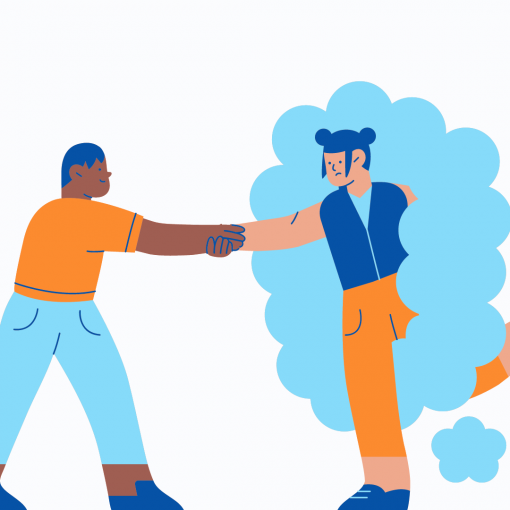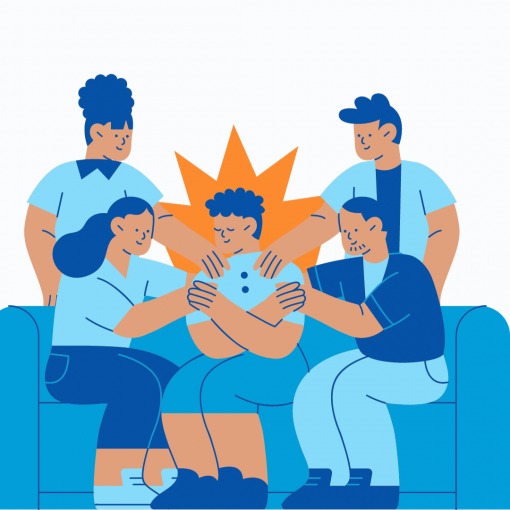Finding a Social Media Balance
In today’s interconnected world, social media has become a pervasive part of our daily lives. Platforms like Facebook, Instagram, Twitter, and TikTok have transformed how we communicate, share, and consume information. While social media offers numerous benefits, it also comes with significant drawbacks. Understanding both sides of the coin is essential for navigating the digital landscape effectively. In this blog post, we will explore the two sides of social media and how to strike a balance between the two.
Benefits of Social Media
Enhanced Communication and Connectivity
- Social media platforms bridge geographical gaps, allowing people to stay connected with friends and family across the globe. Real-time messaging, video calls, and social updates keep us in touch with loved ones, fostering a sense of closeness despite physical separation.
Information and Awareness
- Social media serves as a powerful tool for disseminating information quickly. News, educational content, and awareness campaigns reach a wide audience, helping to inform and educate. This rapid spread of information can be crucial during emergencies or for raising awareness about important issues.
Networking and Professional Opportunities
- Platforms like LinkedIn provide valuable networking opportunities for professionals. Job seekers can connect with potential employers, while businesses can reach out to a broader audience. Social media also enables professionals to share their expertise, gaining recognitions and credibility in their fields.
Community Building and Support
- Social media fosters the creation of online communities where individuals with shared interests and experiences can connect. Support groups for various causes, hobbies, and health conditions thrive on these platforms, providing a sense of belonging and mutual support
Marketing and Business Growth
- For businesses, social media offers a cost-effective way to reach a large audience. Targeted advertising, customer engagement, and brand promotion are some of the many benefits. Small businesses, in particular, can leverage social media to compete with larger companies and expand their reach.
Drawbacks of Social Media
Privacy Concerns
- One of the most significant drawbacks of social media is the potential for privacy invasion. Personal information shared online can be exploited by malicious entities. Data breaches and unauthorized access to personal data are serious risks, highlighting the need for robust privacy settings and cautious sharing.
Mental Health Impact
- Excessive use of social media has ben linked to various mental health issues, including anxiety, depression, and loneliness. The constant comparison to others’ seemingly perfect lives can lead to feelings of inadequacy and low self-esteem. Cyberbullying and online harassment further exacerbate these problems.
Spread of Misinformation
- The rapid spread of information on social media is a double-edged sword. False information, rumors, and conspiracy theories can quickly go viral, leading to widespread misinformation. This can have serious consequences, including influencing public opinions and decision-making based on inaccurate data.
Addiction and Time Management
- Social media can be highly addictive. Leading to excessive screen time and reduced productivity. The design of these platforms often encourages prolonged use, with features like infinite scrolling and notifications that keeps users engaged. This can interfere with personal and professional responsibilities.
Impact on Relationships
- While social media connects people, it can also strain relationships. Excessive online interaction can replace face-to-face communication, leading to superficial connections. Additionally, conflicts and misunderstandings can arise from misinterpreted online interactions, affecting personal relationships.
Striking a Balance
Set Boundaries
- Limit the time spent on social media and establish boundaries to ensure it doesn’t interfere with daily responsibilities and relationships.
Verify Information
- Be critical of the information encountered online. Verify facts from reliable sources before sharing or acting upon them.
Prioritize Privacy
- Use strong privacy settings and be mindful of the personal information shared online. Regularly review and update privacy preferences.
Seek Support
- If social media usage negatively impacts mental health, seek support from friends, family, or professionals. Consider taking breaks from social media when needed.
Engage Positively
- Use social media to foster positive interactions, support others, and contribute to meaningful discussions.
Social media is a powerful tool that, when used mindfully, can enrich our lives in numerous ways. However, it’s essential to remain aware of its potential pitfalls and take proactive steps to ensure a healthy and balanced digital presence. By doing so, we can still enjoy the benefits of social media while also minimizing its negative impacts.




